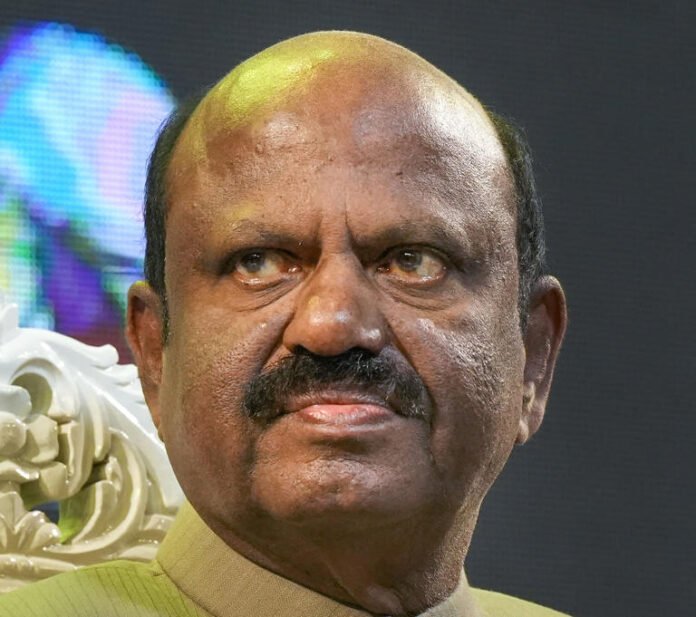Governor C.V. Ananda Bose has openly criticized the state government, accusing it of leading Bengal from “wrong to wrong” in its handling of various issues. His remarks come amid growing discontent and controversy surrounding the state government’s policies and actions, particularly in the wake of recent incidents that have sparked widespread debate.
Governor Bose’s Critique
Governor Bose’s comments were made during a recent press briefing, where he expressed deep concern about the state of affairs in West Bengal. The Governor, appointed to his position in November 2022, has been vocal about his observations regarding the state government’s performance and its impact on governance and public welfare.
“The state is moving from wrong to wrong,” Governor Bose stated, adding that the current administration’s approach to governance is fraught with missteps and inefficiencies. His critique is directed at several key areas, including administrative management, law and order, and economic development. Bose’s remarks highlight his frustration with what he perceives as a lack of effective leadership and strategic planning in addressing the state’s pressing issues.
Key Issues Highlighted
Governor Bose’s criticism encompasses a range of issues that he believes have been mishandled by the West Bengal government:
- Administrative Inefficiency: Bose has raised concerns about the overall effectiveness of the state administration, suggesting that bureaucratic inefficiencies and a lack of accountability have hampered progress. He pointed to delays in implementing critical projects and programs as evidence of poor administrative practices.
- Law and Order: The Governor has also been critical of the state’s handling of law and order. Recent incidents of violence and unrest in West Bengal, including communal clashes and political violence, have drawn significant attention. Bose’s comments reflect his belief that the state government has failed to maintain peace and ensure the safety of its citizens.
- Economic Development: Economic challenges in West Bengal, including issues related to industrial growth, employment, and infrastructure development, have been a focal point of Bose’s criticism. He has suggested that the state’s economic policies and initiatives have not been effective in fostering growth and addressing the needs of the population.
Political Reactions
Governor Bose’s remarks have elicited a range of reactions from political leaders and parties in West Bengal. The ruling Trinamool Congress (TMC), led by Chief Minister Mamata Banerjee, has responded sharply to the criticism. TMC leaders have accused Bose of overstepping his constitutional role and engaging in political commentary that is not aligned with his responsibilities as Governor.
“This is nothing but a political statement,” said a senior TMC leader. “The Governor’s comments are an attempt to undermine the efforts of our government and distract from the real issues facing the state.” The TMC has defended its record, highlighting various development projects and initiatives undertaken during Banerjee’s tenure.
Opposition parties, on the other hand, have welcomed the Governor’s critique as a validation of their own criticisms of the state government. Leaders from parties such as the Bharatiya Janata Party (BJP) and the Left Front have seized on Bose’s remarks to bolster their arguments against the TMC administration.
“The Governor’s observations reflect the concerns we have been raising for months,” said a BJP spokesperson. “The state government needs to address these issues seriously and work towards real solutions rather than continuing down a path of mismanagement.”
Broader Implications
Governor Bose’s comments come at a time of heightened political activity in West Bengal, with upcoming elections and ongoing debates about governance and leadership. His critique adds a new layer to the discourse surrounding the effectiveness of the state government and its approach to key issues.
The Governor’s role in the Indian political system is primarily constitutional, with a focus on ensuring the proper functioning of the state government and representing the central government’s interests. However, Bose’s outspoken criticism raises questions about the extent to which a Governor should engage in public discourse on state governance matters.
As West Bengal navigates its current challenges, the impact of Governor Bose’s remarks will likely influence public perception and political dynamics. The focus will remain on how the state government responds to the criticism and whether it takes steps to address the issues raised by the Governor.
Moving Forward
The situation in West Bengal remains fluid, with ongoing debates about governance, administration, and political leadership. Governor Bose’s criticism serves as a catalyst for discussion and reflection on the state’s current trajectory and future prospects.
For the people of West Bengal, the hope is that constructive dialogue and effective governance will lead to positive changes and progress. As political leaders and stakeholders respond to the Governor’s remarks, the focus will be on finding solutions to the challenges facing the state and working towards a more stable and prosperous future for all residents.

